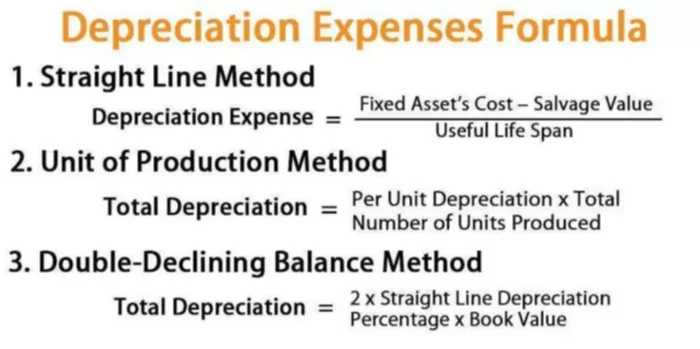Of course, most businesses will always rely on some level of paper storage, but Cloud accounting can at least help you reduce it. I’ll help you overcome challenges, answer your questions, and show you new ways QuickBooks® can save time and support your business even further. Trolley, formerly known as Payment Rails, is a payouts automation platform. Thus, you can keep your contractors, suppliers, and vendors happy to do business with you. As the world becomes more and more digital, it makes sense that accounting and bookkeeping are also hopping on the train. The use of tech in the industry has been common for many years now but it is becoming more so.
However, top-of-the-line tools like Xero bookkeeping ensure enhanced security for all their services. While cloud bookkeeping offers many benefits, there are also some challenges that businesses should be aware of. With cloud bookkeeping, financial data is stored on remote servers, which may be located in different countries. This can create issues with data privacy, as different countries may have different laws regarding data protection. Below are only a few of the cloud bookkeeping software in the cloud that bookkeepers and accountants can rely on.
When it comes to logging in invoices, you can make use of the OCR technology of the platform. This assures you of reduced errors and provides you with more time to spend on other tasks. Tipalti Approve has a payment reconciliation system that provides real-time payment data. With this, you can ensure that every dollar spent is recorded.

Many Cloud accounting providers offer some flexibility in how and when you pay, but all of them require regular payments. Yes, Cloud accounting is much safer, but that’s only true if you put the practices in place that ensure you and your team aren’t leaving your systems vulnerable. Every business and employee have some responsibility to ensure they are doing their part in keeping that crucial data secure.
Indeed, the trend points toward greater technology adoption in accounting. This is true not only for company departments but for individual accountants as well. Streamline, simplify, and automate your financial operations on the Salesforce platform. Certinia Financial Management gives you a flexible general ledger, automated billing processes, and brilliant intelligence all in one place. The Cloud is transforming how we do business, regardless of how large or small the business is. One of the ways it’s doing that is through Cloud Bookkeping with the help of tools like Xero bookkeeping.
Efficiently Managing Accounts Receivable and Payable: Key to Financial Success
QuickBooks Online adapts to your phone or your tablet so you can manage financial transactions on the go. 1-on-1 help with anything you needI take the fear out of finances and help you feel more confident. You’ll get advice tailored to your personal situation to help you manage your business finances. Get it right the first timeQuickBooks set up specific to your business.
- This makes it one of the most viable alternatives to top expense management software.
- Another challenge of cloud bookkeeping is internet connectivity.
- This simplifies bookkeeping further since you only have to record payments once.
- As the world becomes more and more digital, it makes sense that accounting and bookkeeping are also hopping on the train.
If there is an interruption in the internet connection, users may not be able to access their financial information. You can work more efficiently with Sage 50cloud, as it offers clarity regarding your finances. It does that through a cash flow and invoicing module that lets you watch incoming and outgoing money. From the same tab, you can check your accounts receivables, late payments, and expenses.
The Pros and Cons of Cloud Bookkeeping
They can prevent coding errors as well and ensure that purchases are made on time. Additionally, Sage Business Cloud Accounting can synchronize with your bank account feed. This means you can track your bank-connected expenses automatically.

It can integrate with your accounting solution to automatically relay data. This solution helps you get your partners on board a white label portal. Trolley assists you in verifying the data to ensure that when the time for payments comes around, everything will go smoothly. This is because it has an automation function that lets workflows run smoothly without human intervention.
Cons: It’s an ongoing cost
There is a growing diversity within the Cloud accounting market, however, so it’s worth doing your research and seeing what’s out there. It’s only reasonable to expect that more specialised options will become available as the market continues to grow, too. If you are not decided which software to sign up for yet, you can take a cue from accountants. Find out what accountants value most in an accounting software. Also, you can sign up for free trials and demos so you can see the solutions and try them before shelling out money. Accounts payable software Melio is a web-based solution that enables you to pay bills online conveniently and on time.
They only have to take pictures of the receipts and upload them. There is an auto-scan feature, too, that helps save time from data entry. In this way, your company can keep track of employee expenses, especially during their travels, and make sure that they are in line with expense policies.
Cloud bookkeeping software FreshBooks is one that is made purposefully for business owners. Regardless of the type of business you have, you can count on this solution to provide you with advanced yet easy-to-use tools and features. With this, you can save more than 100 hours per month on number crunching. We listed below the top 15 examples of cloud-based bookkeeping solutions. Each one is powerful and has unique features that you can find useful to your bookkeeping process. What you can do instead is to record everything as they happen.
The platform can generate reports regarding your finances in a flash. These can assist you in ensuring that all your finances are in order. Compare NetSuite ERP with other top accounting software to see how it matches up. It also does not need intervention when tracking accounts receivable and accounts payable.
The Future of Accounting: Why Virtual Accountants are the New Trend
When it comes to finances, businesses spend nearly too much time on finance-related tasks that are too often susceptible to human errors. Traditional bookkeeping software like QuickBooks has become outdated and overused over the years. Your company can automatically update its finances with reduced human errors. Cloud bookkeeping is a relatively new concept that has emerged in the field of accounting. It refers to the use of cloud technology to manage and store financial information. This technology has the potential to revolutionize the way businesses manage their accounting processes, and it has already been adopted by many small and medium-sized enterprises.
- Trolley assists you in verifying the data to ensure that when the time for payments comes around, everything will go smoothly.
- You can focus less on the logistics and more on learning how to most effectively use the software.
- This will save you more hours since the platform forwards your bookkeeping entries to your accounting solution.
- It also boasts an automation functionality that helps you cut down the time you spend on bookkeeping tasks.
Much like many industries, the accounting sector had to bring everything into the cloud when the COVID-19 pandemic hit. This represents expanded reliance on accounting software, especially cloud-based ones. You can invite other users to the platform and configure their roles and permissions. In this way, you can collaborate with your team while ensuring security. For the purchase order management module, you can look forward to tools that stop unapproved purchases.
Online bookkeeping software Zoho Books is a smart platform designed for small businesses. You can take advantage of its cloud-native nature to do your bookkeeping tasks smoothly in the cloud. With it, you can organize all business transactions and ensure that every account is updated.
With the latter, you can be certain that every spend is recorded. In the case of accounts receivables, the solution offers a payment portal where customers can securely make their payments. These can help streamline your bookkeeping since they reduce data entry and the possibility of errors.
Cloud Bookkeeping Software
Not only can you save on the costs of paper, but the costs of stocking and maintaining printing machines, and both the money and space spent on storing all your accounts physically. The Cloud allows you to save reports and documents on your own computer, while the remote data centres/servers act as a backup, so you don’t necessarily need a physical copy. With Cloud Bookeping tools like Xero , you don’t have to wait on lengthy install and setup periods to start with your bookkeeping processes. They are hosted entirely online, so all you need to do is register, input a few quick details, log in and start making use of them. You don’t have to go about installing it anew on every new system, so it’s much easier for all members of your team to start making use of it.
What you can do is have employees create trip requests with complete information. Then, the travel team can make the arrangements once the requests have been approved.
You can focus less on the logistics and more on learning how to most effectively use the software. The software even eliminates manual data entry by connecting to your bank accounts. This simplifies bookkeeping further since you only have to record payments once. Xero gives employees the ability to add receipts to the system, which your finance team can process immediately. Apart from that, you can worry less about missing entries in your bookkeeping process since you can access the receipts anytime. A2X also integrates with your favorite accounting software such as Xero, Sage, and QuickBooks.

